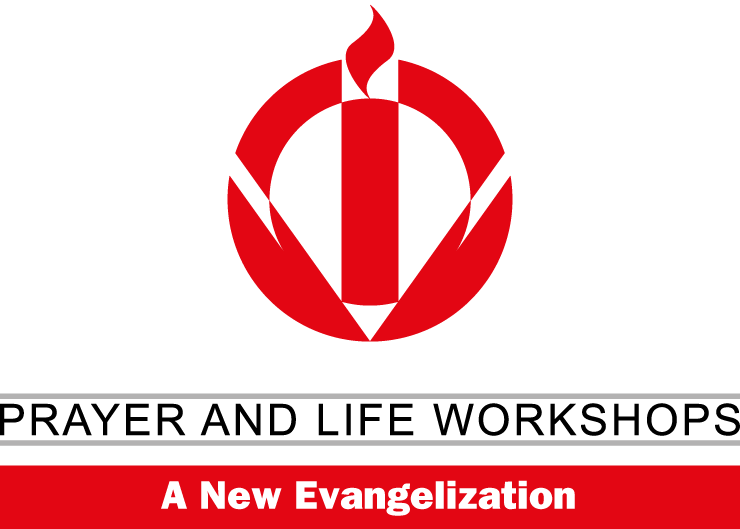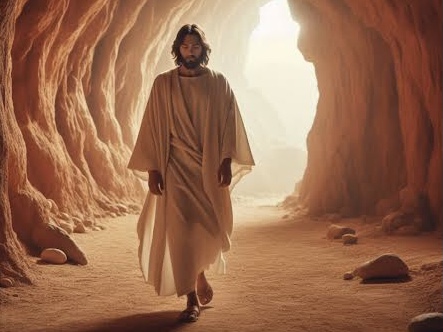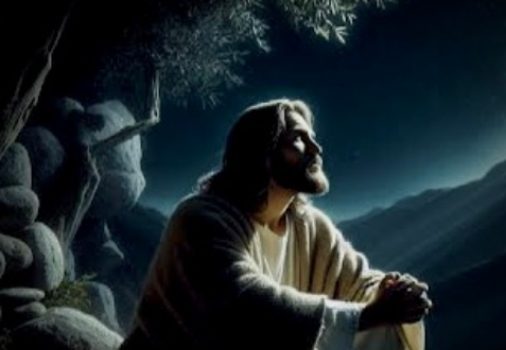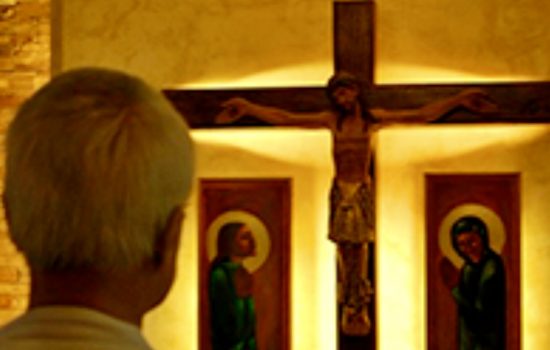After reviewing the past, the psalmist transcends all time. With powerful words, he positions himself in the present that embraces yesterday and tomorrow, and provides us with a grandiose vision: he proclaims that God is eternally present. Indeed, God’s divine majesty moves in the background of the psalm like a perennial current, eternally the same, in contrast to the incessant changeability of human nature.
Before the mountains were born
The earth and the world brought forth
From eternity to eternity, You are God.
It is a powerful cosmic vision in which the psalmist looks back and then looks forward. But he does not stay in the past or with the future, but rather with the present: You are.
Frequently we live trying to hold onto what has escaped us, wishing for things we lack and missing what is nonexistent. We live in a past that does not exist anymore and in a future that does not yet exist, full of nostalgic disquiet and false mirages, forgetting that only the here and now are God’s time, pregnant with possibilities.
Humanly speaking, what is the content or the meaning of the now that we call the present? The present is a point in which the future becomes the past. When we say, “Now is the present,” we are already in the past. The present disappears the same instant we try to take a hold of it. When we attempt to grasp it, it is already gone. So, if the past does not exist, then the future does not exist either. Now we are saying that the present does not exist either. Is it that our existence is only illusory in character?
Certainly not. On the contrary, our experience attests to the fact that the now is real, and it is so because eternity breaks into time, and gives it its real meaning. We could not even say “now,” if at that moment, eternity did not raise this moment above time that never ceases. When the psalmist contemplates a God, for whom “a thousand years are as yesterday come and gone,” he is experiencing that eternity which for him, the psalmist, is a real and concrete now. He is participating in some form, in God’s eternity. Whenever we say “now,” in that now are united something temporal and something eternal, the past and the future.
Therefore, for God there is neither past nor future, only the present. That is why when the psalmist is looking at the past and the future (“from eternity and for eternity”), he adds, in spite of the grammatical error: You are; the now set in stone, eternalized, extending forwards and backwards. This is what makes our temporality, which is an abstract entity, have a real and objective character. This is due to the participation of the now of God. We are then, sons of eternity.
Before the existence of that snowcapped mountains and the roses had flowered in the fields, and the waterfalls had come down from the mountains, and man had named each living thing, You are, in your eternal now.
Before that blast in which the universe broke into its million particles of galaxies and constellations, which began the walk we called universal expansion; before all that You are, from eternity and for eternity. Over the course of millions of years, hydrogen was transforming itself into helium. In the meantime, the stars would be disappearing one by one. Even the neutronic stars would be consumed in the form of fumes; therefore the universe will come to an end going by returning to its nothingness; You are from eternity and for eternity.
Extracted from the book “Psalms for life” by Fr. Ignacio Larranaga, OFM










